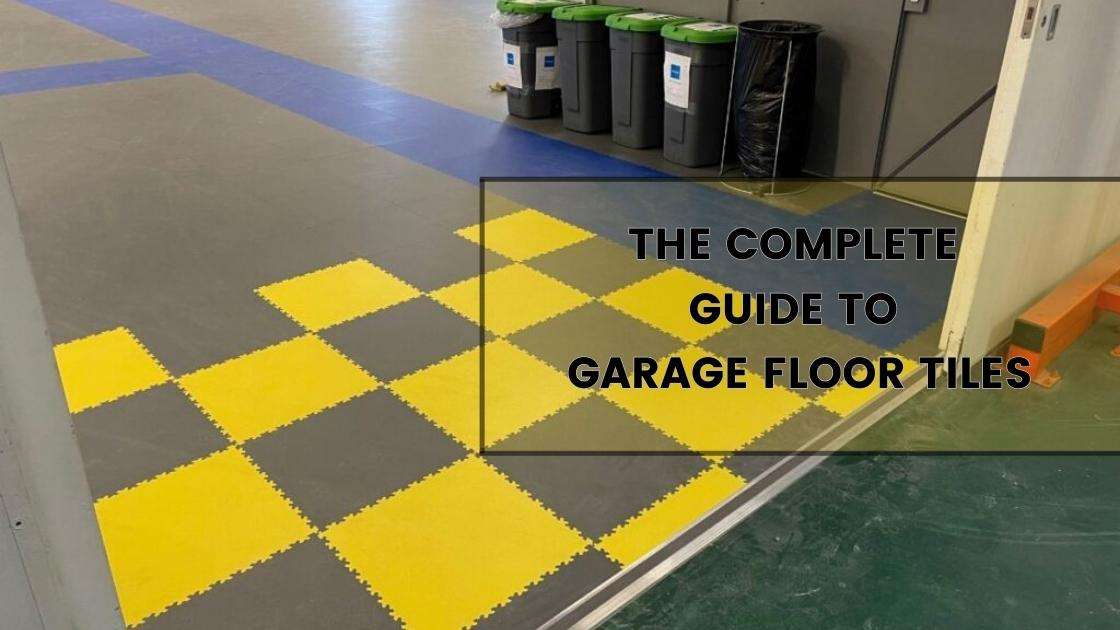
Dec 5,2023
Welcome to the comprehensive guide on garage floor tiles, where we will explore everything you need to know about this essential aspect of garage flooring. Our expert team has compiled valuable insights and detailed information to help you make informed decisions when selecting the perfect garage floor tiles for your needs. Whether you are a DIY enthusiast or seeking professional installation, this guide has got you covered.
A garage is not just a space to park your vehicle but a multi-functional area for various activities. The right choice of garage floor tiles can significantly enhance your garage's overall appearance, durability, and functionality. Moreover, high-quality garage floor tiles provide the following:
i. Essential protection to the underlying concrete.
ii. Preventing cracks and stains.
iii. Ensuring a long-lasting flooring solution.
Interlocking garage floor tiles are popular for their ease of installation and versatility. These tiles come in various materials, such as PVC, rubber, and polypropylene. They feature an innovative interlocking system that allows for quick setup without adhesives. Interlocking tiles offer great design flexibility, allowing you to create patterns or borders, giving your garage a customized and professional look.
Rigid garage floor tiles, often made from durable materials like ceramic, porcelain, or concrete, are an excellent option for heavy-duty use. These tiles can withstand the weight of heavy vehicles, making them ideal for car enthusiasts or professional garages. While the installation process may be more involved than interlocking tiles, the long-term benefits of durability and resilience make them a worthy investment.
Flexible garage floor tiles, such as rubber or foam tiles, offer exceptional comfort and shock absorption. If you spend extended periods in your garage or use it as a workshop, these tiles can ease the strain on your feet, knees, and back. Additionally, they are great for reducing noise levels, which is beneficial if neighbors are nearby. However, remember that flexible tiles might not be as durable as rigid options and require more maintenance.
The durability of your garage floor tiles is paramount, especially if you expect heavy traffic or plan to store heavy equipment or vehicles. Consider the material and construction of the tiles to ensure they can withstand the wear and tear of daily use without cracking or chipping.
Garages can be hazardous when wet or oily substances spill on the floor. Opt for tiles with excellent slip resistance to reduce the risk of accidents. This is especially crucial in areas with frequent rain or snowfall.
Depending on your skill level and preferences, choose tiles that are easy to install, like interlocking tiles. Alternatively, rigid tiles may be the better option if you prefer a professional installation for a more seamless look.
Your garage doesn't have to be dull and uninviting. Select tiles that complement your overall garage theme and reflect your style. With various colors, patterns, and textures, you can create a visually appealing space that makes you proud.
Consider the level of maintenance required for the garage floor tiles you choose. Some materials may need occasional sealing or cleaning to maintain the appearance, while others may be more low-maintenance.
Before installing garage floor tiles, ensure the subfloor is clean, level, and cracks-free. Any imperfections in the subfloor can affect the tiles' performance and lifespan.
Always follow the manufacturer's guidelines and instructions during installation. Each type of garage floor tile may have specific requirements to ensure optimal performance.
Maintain the cleanliness of your garage floor tiles by sweeping or vacuuming regularly to remove debris and dirt. For spills and stains, clean them promptly to prevent permanent damage.
If you have chosen materials like concrete or natural stone tiles, consider periodic sealing to protect the surface from stains and moisture penetration.
In conclusion, selecting the right garage floor tiles is crucial for transforming your garage into a functional, safe, and visually appealing space. Interlocking, rigid, and flexible tiles each offer unique advantages, catering to different preferences and needs.
When choosing your garage floor tiles, prioritize durability, slip resistance, ease of installation, design, and maintenance. Proper installation and maintenance are equally vital to ensure the longevity and performance of your chosen tiles.
While it's best to have a level surface, some garage floor tiles can accommodate minor irregularities. However, a smooth and level floor will ensure the best results.
Absolutely! High-quality garage floor tiles are engineered to bear the weight of vehicles without sustaining damage.
Not necessarily. Most garage floor tiles are designed for DIY installation, making it a straightforward process for homeowners.
The lifespan of garage floor tiles depends on the material and level of maintenance. With proper care, they can last 10-20 years or more.
Yes, garage floor tiles can be used in various areas of your home, such as basements, workshops, or outdoor patios.